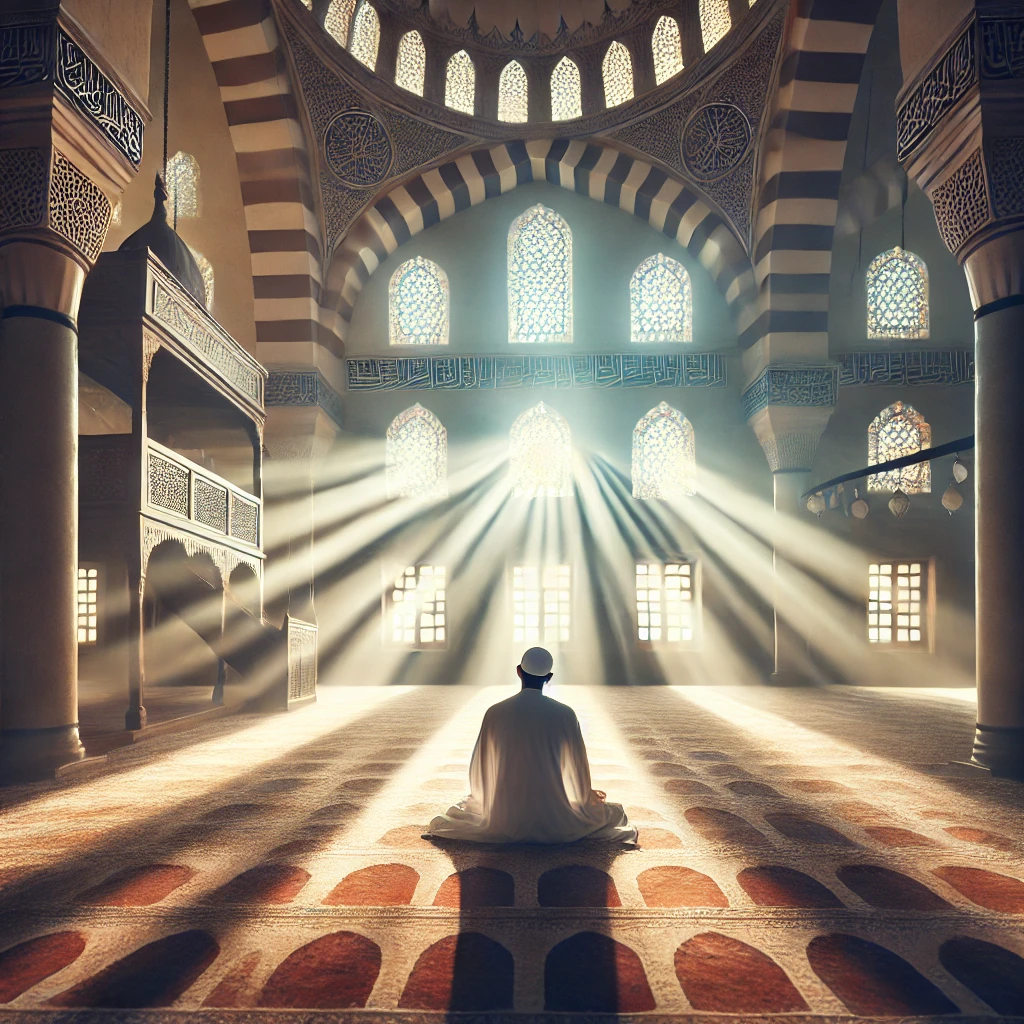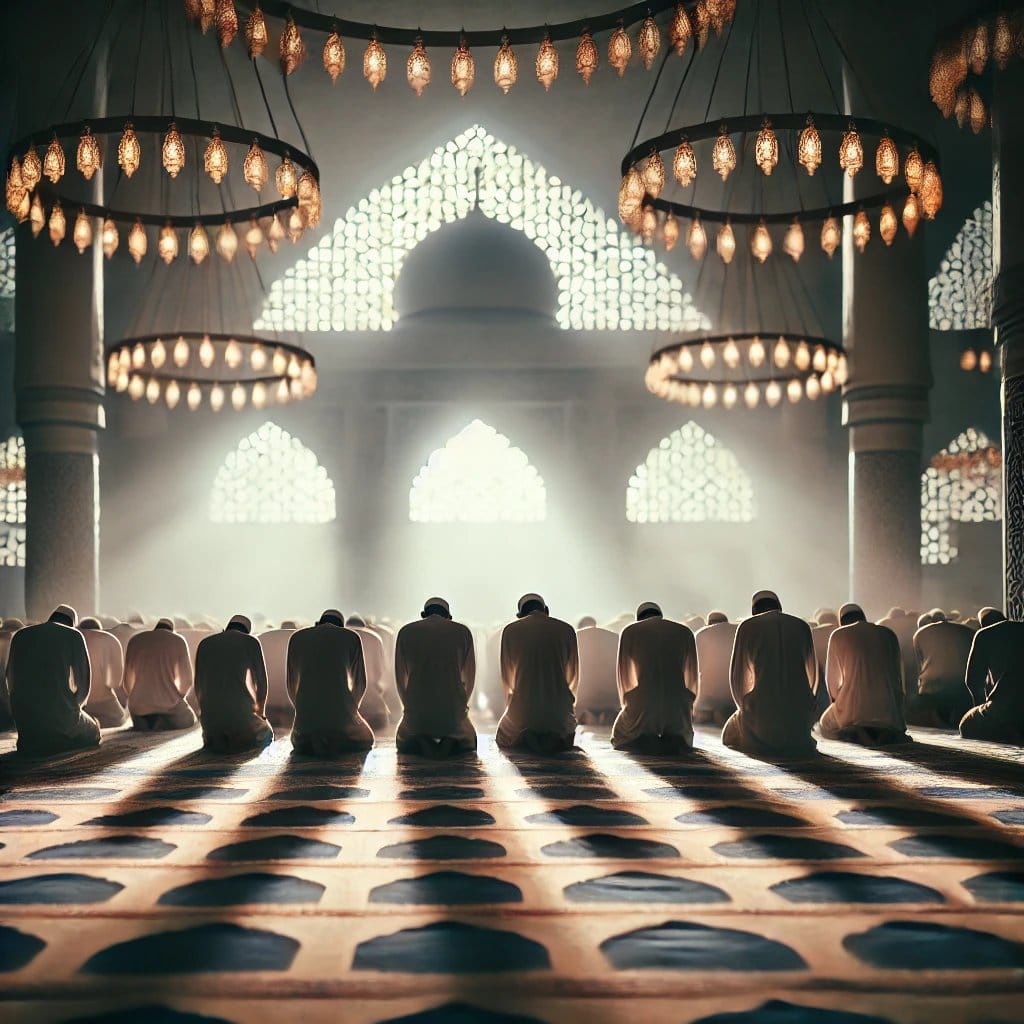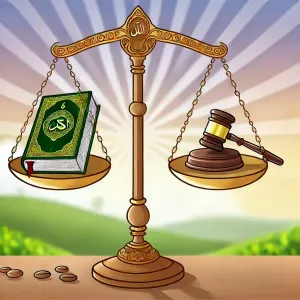In Islam, the concept of Allah stands at the very core of the faith. Muslims believe in one supreme God who is eternal, all-powerful, and all-knowing. Known as Allah, this deity is believed to be the Creator and Sustainer of the universe and everything in it. The belief in Allah’s oneness, known as Tawheed, is the fundamental principle that underpins all of Islam’s teachings and practices.
This article delves into the attributes, characteristics, and understanding of Allah in Islam, exploring His role in creation, human life, and the relationship between God and His followers. We will also address some common misconceptions about Allah, discuss the significance of monotheism, and explain how Muslims develop a personal relationship with their Creator.
The Meaning and Significance of Allah
The term Allah is derived from the Arabic word Al-Ilah, meaning "The God." Allah is unique in that He is indivisible and has no partners, no equals, and no offspring. In Arabic-speaking countries, even Christians and Jews use the word Allah to refer to God. However, in Islamic theology, Allah is understood as the one and only God, with no comparison or likeness to anything in creation.
Islam teaches that Allah is not bound by time or space, nor is He subject to the limitations of physical existence. This concept distinguishes Islam from many other belief systems where God is often depicted in human or natural forms. For Muslims, Allah is beyond human comprehension, yet His presence is felt in every aspect of life.
The Quran, Islam’s holy book, frequently affirms the belief in the oneness of Allah. One of the most important chapters, Surah Al-Ikhlas, encapsulates this belief:
"قُلۡ هُوَ ٱللَّهُ أَحَدٌ (1) ٱللَّهُ ٱلصَّمَدُ (2) لَمۡ يَلِدۡ وَلَمۡ يُولَدۡ (3) وَلَمۡ يَكُن لَّهُۥ كُفُوًا أَحَدُۢ (4)"
سوره الإخلاص
"Say, ‘He is Allah, [who is] One,
Allah, the Eternal Refuge.
He neither begets nor is born,
Nor is there to Him any equivalent.’"
(Quran 112:1-4)
This passage underscores the central tenet of Tawheed, declaring that Allah is unique, eternal, and unlike anything else.

The Oneness of Allah: Tawheed
At the heart of Islamic belief is the doctrine of Tawheed, or monotheism. Tawheed refers to the oneness of Allah in all His aspects. It is the foundation upon which all Islamic teachings rest and is the central message that was brought by all of Allah's prophets, including Noah, Abraham, Moses, Jesus, and finally, Muhammad (peace be upon them all).
Tawheed can be divided into three major categories:
- Tawheed al-Rububiyyah (Oneness of Lordship): This aspect of Tawheed asserts that Allah alone is the Creator, Sustainer, and Ruler of the universe. He alone controls the affairs of the world and everything within it. Muslims believe that nothing happens without the will of Allah, and He is the sole provider for all creatures.
- Tawheed al-Asma wa al-Sifat (Oneness of Names and Attributes): Allah possesses many beautiful names and attributes, which are mentioned throughout the Quran and Hadith. These names describe His qualities, such as Al-Rahman (The Most Merciful), Al-Aleem (The All-Knowing), and Al-Qadir (The All-Powerful). Muslims believe that no one shares in these attributes, and nothing in creation can be compared to Allah.
- Tawheed al-Uluhiyyah (Oneness of Worship): This aspect emphasizes that Allah alone is worthy of worship. Muslims are commanded to direct all acts of worship—such as prayer, fasting, charity, and pilgrimage—to Allah and no one else. Associating partners with Allah in worship (a practice known as Shirk) is considered the gravest sin in Islam.
The concept of Tawheed not only defines the relationship between God and humanity but also promotes a worldview in which all aspects of life are interconnected under the guidance of a single, supreme deity. This oneness brings unity, purpose, and peace to the life of a believer.
The 99 Names of Allah: Understanding His Attributes
One of the most profound ways that Muslims come to know Allah is through His 99 names. Each name reflects a different attribute of Allah, giving Muslims insight into His nature and how He interacts with the world. The 99 names of Allah are scattered throughout the Quran, and reflecting on these names helps believers strengthen their understanding and connection with Him.
Some of the most significant names include:
- Al-Rahman (The Most Merciful): Allah’s mercy extends to all of creation. Every good that happens in the world is a result of His mercy. Muslims begin almost every action by invoking this name, saying "Bismillah al-Rahman al-Raheem" (In the name of Allah, the Most Merciful, the Most Compassionate).
- Al-Hakim (The All-Wise): Allah’s wisdom is beyond human comprehension. Everything He decrees is part of a divine plan, even if humans do not fully understand His wisdom at the moment.
- Al-Malik (The Sovereign): Allah is the supreme ruler of the universe. He is the ultimate authority over all matters, and no one can challenge His will.
- Al-Aleem (The All-Knowing): Allah’s knowledge encompasses everything—past, present, and future. He knows what is in the hearts of people and what lies beyond human perception.
- Al-Qadir (The All-Powerful): Allah is capable of doing anything. Nothing is beyond His power, and He is in control of every aspect of creation.
- Al-Ghaffar (The Forgiving): Allah is infinitely forgiving to those who turn to Him in repentance. No matter how great a person’s sins may be, if they sincerely seek Allah’s forgiveness, He is ready to forgive.
These names serve as reminders of Allah’s limitless power, mercy, and wisdom. They also teach Muslims how to approach life with humility, trust, and a sense of accountability, knowing that Allah is always aware of their actions and intentions.
The Relationship Between Allah and Humanity
In Islam, the relationship between Allah and human beings is based on servitude, love, and mercy. Muslims believe that Allah created humanity for the sole purpose of worshipping Him and following His guidance. This relationship is not one of fear and punishment but rather of love and devotion.
Allah is close to His creation, and Muslims are encouraged to turn to Him in prayer and supplication at all times. The Quran teaches that Allah is always ready to respond to the calls of His servants:
"وَإِذَا سَأَلَكَ عِبَادِى عَنِّى فَإِنِّى قَرِيبٌ ۖ أُجِيبُ دَعْوَةَ ٱلدَّاعِ إِذَا دَعَانِ ۖ فَلْيَسْتَجِيبُوا۟ لِى وَلْيُؤْمِنُوا۟ بِى لَعَلَّهُمْ يَرْشُدُونَ ١٨٦"
سورة البقرة - الآية ١٨٦
"And when My servants ask you concerning Me, indeed I am near. I respond to the invocation of the supplicant when he calls upon Me."
(Quran 2:186)
Muslims believe that Allah is always present and accessible, no matter the circumstances. The act of prayer (Salah) is one of the most important ways Muslims maintain their relationship with Allah. By praying five times a day, Muslims are constantly reminded of their dependence on Allah and their responsibility to live in accordance with His guidance.

The Importance of Worship in Islam
Worship is central to the life of a Muslim, and it encompasses far more than just rituals. In Islam, worship includes any action done with the intention of pleasing Allah, whether it’s prayer, fasting, giving charity, or treating others with kindness and justice. Muslims believe that every aspect of life can be an act of worship if it’s done with the right intention.
The Quran instructs believers to live their lives with a constant awareness of Allah’s presence:
"وَمَا خَلَقْتُ ٱلْجِنَّ وَٱلْإِنسَ إِلَّا لِيَعْبُدُونِ ٥٦"
سورة الذريات - الآية ٥٦.
"And I did not create the jinn and mankind except to worship Me."
(Quran 51:56)
This sense of Taqwa (God-consciousness) is not limited to formal prayers or religious rituals. In Islam, even everyday actions such as working honestly, treating others kindly, and showing gratitude for Allah's blessings can be considered acts of worship if done with the right intention. Muslims strive to live every moment of their lives with an awareness of Allah’s presence and the desire to please Him through their actions.
Forms of Worship in Islam
Worship in Islam can be divided into two main categories: obligatory and voluntary acts of worship.
1. Obligatory Worship (Fard)
- Salah (Prayer): Muslims are required to perform five daily prayers, which serve as a reminder of their relationship with Allah and an opportunity to express gratitude and seek guidance.
- Sawm (Fasting): Fasting during the month of Ramadan is obligatory for all adult Muslims. This act of self-discipline and reflection helps believers develop patience and empathy for the less fortunate.
- Zakat (Charity): Muslims are obligated to give a portion of their wealth (2.5% annually) to those in need. Zakat purifies wealth and supports the welfare of the community.
- Hajj (Pilgrimage): Every Muslim who is physically and financially able is required to perform the pilgrimage to Mecca at least once in their lifetime. Hajj is a profound act of devotion and unity that brings Muslims from around the world together in worship.
2. Voluntary Worship (Nafl)
- Additional Prayers (Sunnah and Nafl): Muslims can perform additional, non-obligatory prayers to seek Allah’s blessings and strengthen their faith.
- Dhikr (Remembrance of Allah): This is the act of remembering Allah through repeated recitation of His names, praising Him, or reflecting on His greatness. This can be done at any time and is a highly recommended form of worship in Islam.
- Dua (Supplication): Muslims are encouraged to make personal supplications (Dua) to Allah, asking for His help, guidance, or forgiveness in all matters, big or small.

Allah’s Mercy and Compassion
A central theme in Islam is Allah’s overwhelming mercy and compassion. Muslims believe that no matter how many sins a person may commit, Allah’s mercy is always available to those who sincerely repent and turn back to Him. The Quran repeatedly emphasizes that Allah is Al-Rahman (The Most Merciful) and Al-Raheem (The Most Compassionate), and His mercy extends to every aspect of life.
The Prophet Muhammad (peace be upon him) described Allah’s mercy in a powerful Hadith:
عن صحيح مسلم.
قال: سمعت رسول الله ، صلى الله عليه وسلم يقول:
“جعل الله الرحمة مائة جزء فأمسك عنده تسعة وتسعين، وأنزل في الأرض جزءا واحداً، فمن ذلك الجزء يتراحم الخلائق حتى ترفع الدابة حافرها عن ولدها خشية أن تصيبه".
"Allah has divided His mercy into one hundred parts. He kept ninety-nine parts for Himself and sent down one part to the world. It is because of this one part that creatures are merciful to each other, so much so that an animal will lift its hoof away from its young for fear of hurting it."
(Sahih Muslim)
This Hadith demonstrates the vastness of Allah’s mercy, which exceeds all human understanding. While the mercy shown by people and animals to one another is only a fraction of Allah’s total mercy, the remaining 99 parts are reserved for the Day of Judgment, when Allah’s forgiveness will encompass those who have repented for their sins.
Forgiveness in Islam
In Islam, Allah’s mercy is closely linked to His willingness to forgive. Muslims believe that Allah loves those who seek His forgiveness and that He is always ready to pardon those who turn to Him in repentance, regardless of the magnitude of their sins. The Quran teaches:
"۞ قُلْ يَـٰعِبَادِىَ ٱلَّذِينَ أَسْرَفُوا۟ عَلَىٰٓ أَنفُسِهِمْ لَا تَقْنَطُوا۟ مِن رَّحْمَةِ ٱللَّهِ ۚ إِنَّ ٱللَّهَ يَغْفِرُ ٱلذُّنُوبَ جَمِيعًا ۚ إِنَّهُۥ هُوَ ٱلْغَفُورُ ٱلرَّحِيمُ ٥٣"
سورة الزمر - الآية ٥٣
"Say, 'O My servants who have transgressed against themselves [by sinning], do not despair of the mercy of Allah. Indeed, Allah forgives all sins. Indeed, it is He who is the Forgiving, the Merciful.'"
(Quran 39:53)
This verse provides hope to all believers, reminding them that no matter how far they may stray, Allah’s mercy is always within reach if they are willing to return to Him.
Allah’s Justice and Accountability
While Allah’s mercy is vast, Islam also teaches that Allah is just. Every individual will be held accountable for their actions on the Day of Judgment, and those who have knowingly persisted in wrongdoing without repentance will face the consequences of their deeds.
The Quran frequently reminds believers of the balance between mercy and justice:
﴿إِنَّ اللَّهَ لَا يَظْلِمُ النَّاسَ شَيْئًا وَلَٰكِنَّ النَّاسَ أَنفُسَهُمْ يَظْلِمُونَ﴾
[ يونس: 44]
"Indeed, Allah does not wrong the people at all, but it is the people who are wronging themselves."
(Quran 10:44)
This verse emphasizes personal responsibility and accountability in Islam. While Allah is always ready to forgive those who seek His mercy, people must also strive to live righteous lives and avoid behaviors that harm others or violate Allah’s commandments.
The Day of Judgment
Muslims believe in the Day of Judgment, when all individuals will be resurrected and held accountable for their deeds. On that day, Allah will judge every person fairly, rewarding the righteous and punishing the wrongdoers. The Quran describes this event in vivid detail:
﴿وَاتَّقُوا يَوْمًا تُرْجَعُونَ فِيهِ إِلَى اللَّهِ ۖ ثُمَّ تُوَفَّىٰ كُلُّ نَفْسٍ مَّا كَسَبَتْ وَهُمْ لَا يُظْلَمُونَ﴾
[ البقرة: 281]
"And fear the Day when you will be returned to Allah. Then every soul will be compensated for what it earned, and they will not be wronged."
(Quran 2:281)
Muslims are encouraged to live with a sense of accountability, knowing that every action, whether good or bad, will be weighed on the Day of Judgment. However, the teachings of Islam emphasize that Allah’s justice is tempered with mercy, and those who sincerely seek forgiveness will be shown compassion.
Common Misconceptions About Allah
Non-Muslims often have several misconceptions about Allah, especially due to misunderstandings or inaccurate portrayals of Islamic beliefs. One common misconception is that Allah is a different God from the God worshiped by Christians and Jews. In reality, Allah is simply the Arabic word for God, used by Muslims, Christians, and Jews who speak Arabic. The core belief in one supreme God is shared among all three Abrahamic religions, though the understanding of God’s nature and attributes differs.
Another misconception is that Allah is a distant or impersonal God. Some believe that Allah is only concerned with punishment and fear. However, as we’ve discussed, Allah’s attributes include both mercy and justice. The Islamic view of Allah emphasizes His closeness to His creation, His accessibility to those who seek Him, and His willingness to forgive.
Finally, some may misunderstand the concept of Tawheed (the oneness of God) and assume that Muslims deny the existence of other deities out of disrespect for other faiths. In Islam, the rejection of polytheism or associating partners with Allah (known as Shirk) is not intended as an insult to other religions but is simply a reflection of Islam’s firm belief in monotheism.
Developing a Personal Relationship with Allah
For Muslims, developing a personal relationship with Allah is at the heart of their faith. This relationship is nurtured through regular acts of worship, reflection, and Dhikr (remembrance of Allah). The more a believer learns about Allah’s names and attributes, the deeper their understanding of His greatness and mercy becomes.
Muslims are encouraged to engage with Allah in every aspect of their lives, whether through prayer, Quran recitation, or even simple acts of kindness. Islam teaches that Allah is always close, and He responds to those who call on Him sincerely.
The Quran beautifully captures this idea:
﴿وَقَالَ رَبُّكُمُ ادْعُونِي أَسْتَجِبْ لَكُمْ ۚ إِنَّ الَّذِينَ يَسْتَكْبِرُونَ عَنْ عِبَادَتِي سَيَدْخُلُونَ جَهَنَّمَ دَاخِرِينَ﴾
[ غافر: 60]
"And your Lord says, 'Call upon Me; I will respond to you.' Indeed, those who disdain My worship will enter Hell [in disgrace]."
(Quran 40:60)
This verse is a reminder that no matter how far someone may feel from Allah, He is always ready to listen and respond. Muslims believe that Allah is not just a distant deity but a personal and caring God who is intimately involved in their lives.

Conclusion
Understanding who Allah is lies at the very heart of Islam. He is the one true God, the Creator, Sustainer, and ultimate Judge of all creation. His mercy and compassion know no bounds, yet His justice ensures that every soul is treated fairly. Through worship, reflection, and sincere devotion, Muslims build a close and personal relationship with Allah, striving to live their lives in accordance with His guidance. Allah’s presence is not distant or inaccessible; He is always near to those who seek Him with sincerity. Whether through the formal acts of worship or through everyday good deeds, Muslims believe that Allah is always aware of their actions, ready to forgive, and willing to guide them on the right path.
This understanding of Allah shapes the life of a Muslim, providing purpose, direction, and comfort. It gives believers a sense of peace, knowing that Allah’s mercy and justice govern their lives and the universe around them. By reflecting on Allah’s attributes and embracing the concept of Tawheed, Muslims are able to develop a profound connection with their Creator, built on love, fear, and hope.
For those who are new to Islam or seeking to understand the religion, exploring the concept of Allah is the first step in understanding the essence of the faith. Allah is not just a distant figure; He is central to every aspect of a Muslim’s life, offering guidance, mercy, and the promise of eternal peace to those who follow His path.




